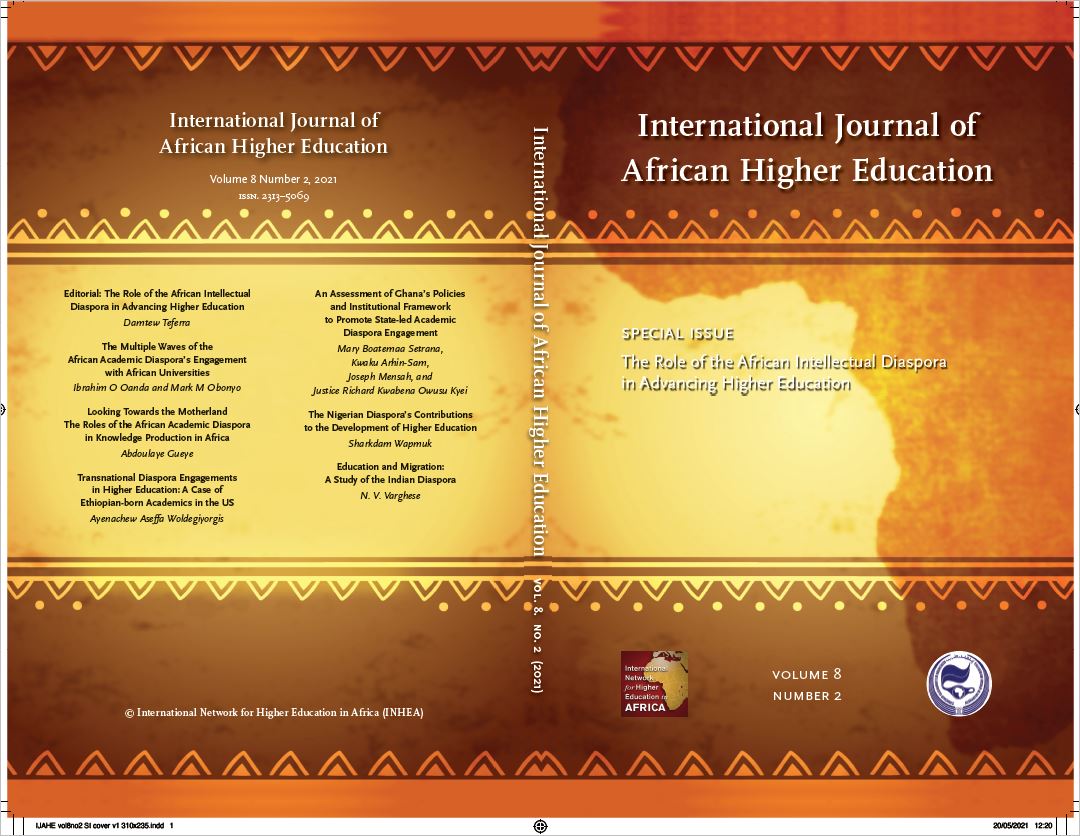Looking Towards the Motherland:
The Roles of the African Academic Diaspora in Knowledge Production in Africa
Abstract
In the past 20 or so years, the African diaspora’s engagement in universities
in Africa has inspired numerous studies. This article contributes to this
literature both empirically and theoretically. Questioning the nationalism
paradigm, which chiefly attributes African diaspora academics’ interventions
in African higher education institutions to patriotism, it argues
that any explanation of the privileged forms of this engagement ought
to consider two major factors. The first is that African diaspora scholars
have been socialised in a strong colonial-era ideological imperative, which
values engagement in Africa; their socio-professional relevance on their
continent of origin should thus be assessed in this light. The second factor
is that African diaspora academics are integrated into professional foreign
academic institutions with their own rules and high stakes. While they
are urged to serve in Africa, they are also required to excel in their local
institution and at the global academic level. Given the time constraints this
imposes, diaspora academics’ engagement in Africa is confined to roles
that are compatible with the expectations imposed by Western academia.
Key Words: diaspora, African academics, higher education, engagement,
Africa
Downloads
Published
How to Cite
Issue
Section
License
Copyright (c) 2021 Abdoulaye Gueye

This work is licensed under a Creative Commons Attribution-NonCommercial-NoDerivatives 4.0 International License.

